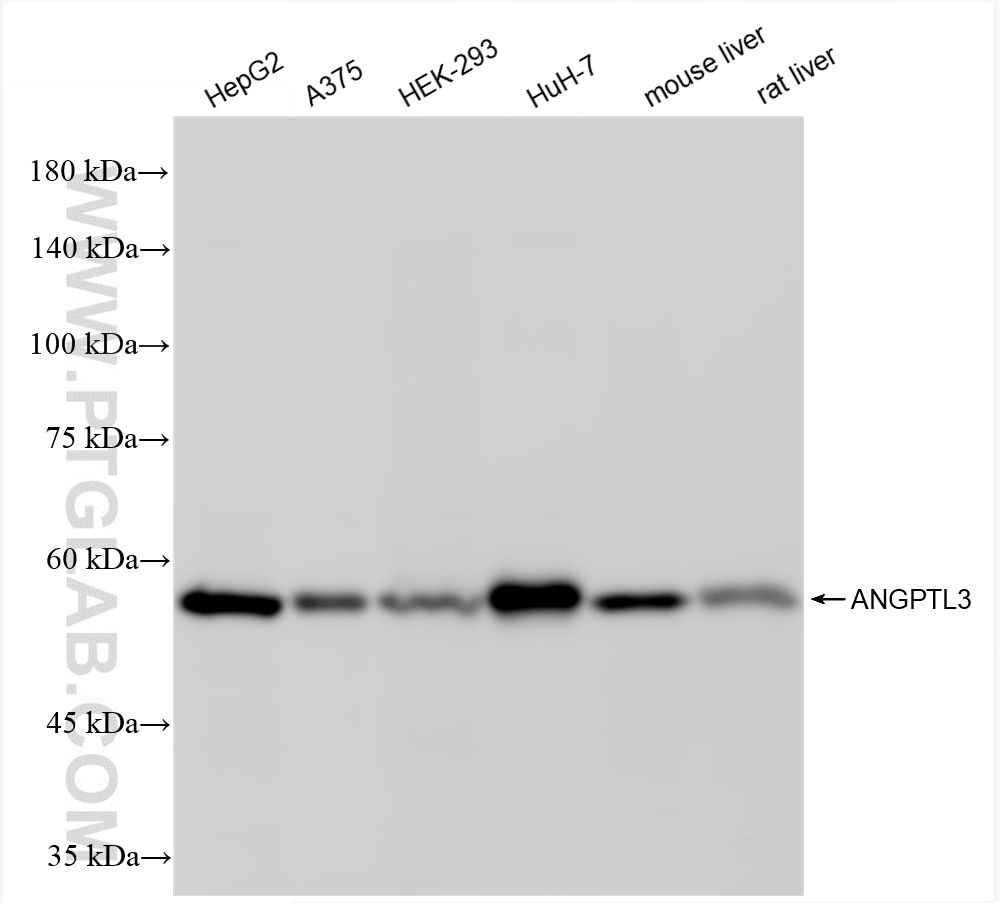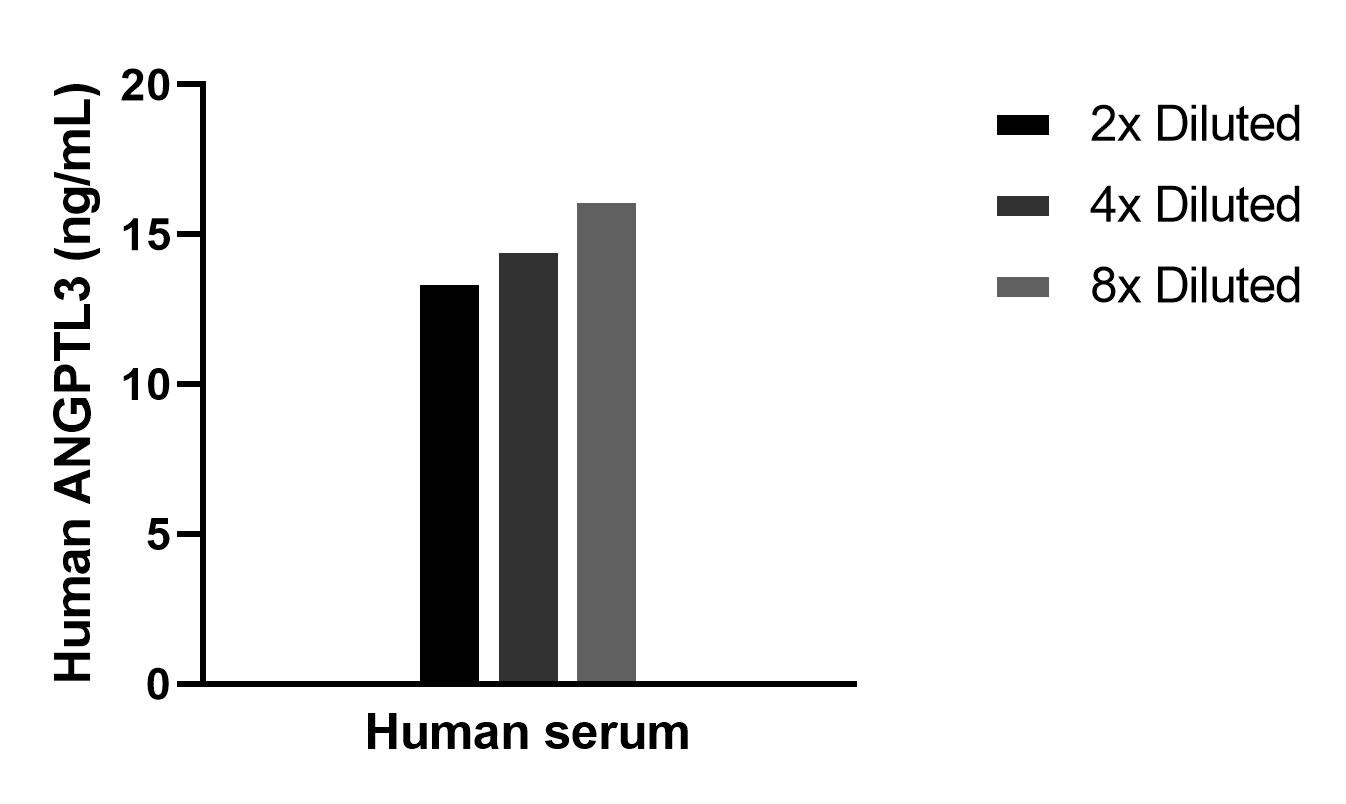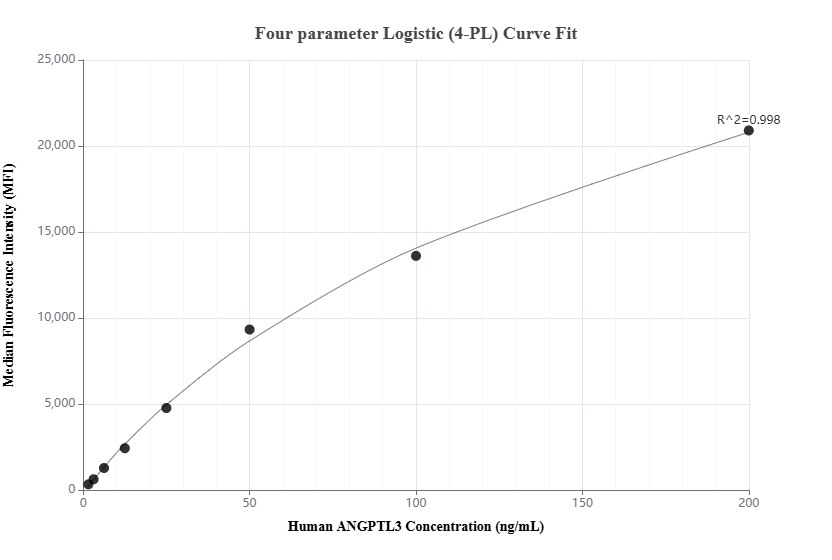Product Information
86193-1-PBS targets ANGPTL3 as part of a matched antibody pair:
MP02294-1: 86193-2-PBS capture and 86193-1-PBS detection (validated in Cytometric bead array)
Unconjugated rabbit recombinant monoclonal antibody in PBS only (BSA and azide free) storage buffer at a concentration of 1 mg/mL, ready for conjugation. Created using Proteintech’s proprietary in-house recombinant technology. Recombinant production enables unrivalled batch-to-batch consistency, easy scale-up, and future security of supply.
This conjugation ready format makes antibodies ideal for use in many applications including: ELISAs, multiplex assays requiring matched pairs, mass cytometry, and multiplex imaging applications.Antibody use should be optimized by the end user for each application and assay.
| Tested Reactivity | human, mouse, rat |
| Host / Isotype | Rabbit / IgG |
| Class | Recombinant |
| Type | Antibody |
| Immunogen | ANGPTL3 fusion protein Ag2573 Predict reactive species |
| Full Name | angiopoietin-like 3 |
| Calculated Molecular Weight | 460 aa, 54 kDa |
| Observed Molecular Weight | 54 kDa |
| GenBank Accession Number | BC058287 |
| Gene Symbol | ANGPTL3 |
| Gene ID (NCBI) | 27329 |
| Conjugate | Unconjugated |
| Form | Liquid |
| Purification Method | Protein A purification |
| UNIPROT ID | Q9Y5C1 |
| Storage Buffer | PBS only, pH 7.3. |
| Storage Conditions | Store at -80°C. |
Background Information
ANGPTL3 belongs to the angiopoietin-like protein family. ANGPTL3 is mainly synthesized by liver cells and is notably expressed in kidney podocytes. Accumulating evidences have revealed that ANGPTL3 plays a critical role in both biological processes, such as lipid metabolism, angiogenesis and haematopoietic function and pathological changes, including atherosclerosis, carcinogenesis, nephrotic syndrome, diabetes, liver diseases and so on. Thus, ANGPTL3 may serve as a potential biomarker in these diseases.







